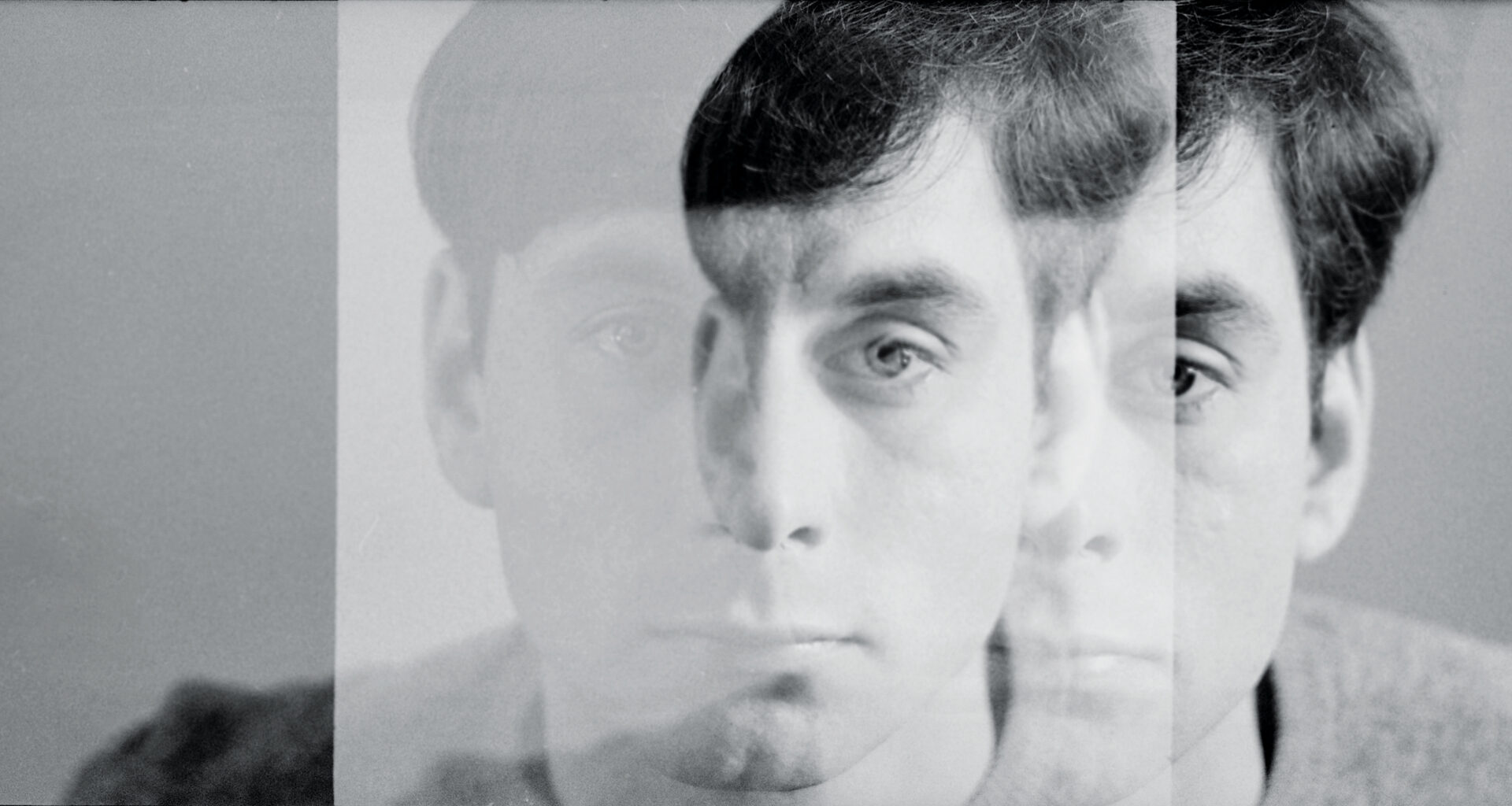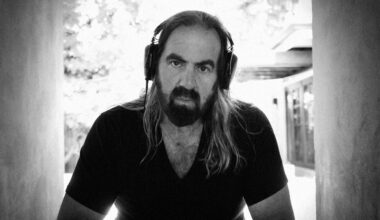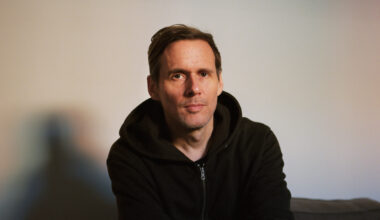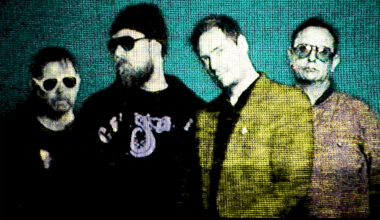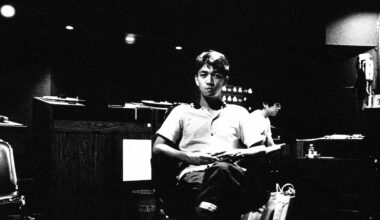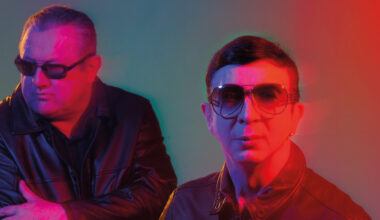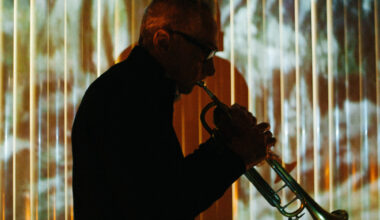Which may well be the case, but when Wire’s Colin Newman also claims he’s a rubbish solo artist we just have to step in. Exhibit A? the lovingly reissued trio of his extraordinary 80s solo albums…
If you are French, chances are that you will have heard of Colin Newman. Not because of his work with Wire, not even those three 1970s albums (‘Pink Flag’, ‘Chairs Missing’ and ‘154’) that are revered by any right-thinking music fan. For the average French music fan, Colin Newman is the guy who played keyboards on the 1989 album ‘Novice’ by chanson superstar Alain Bashung.
Equally, not everyone is aware that Colin Newman’s three solo albums, ‘A-Z’ (1980), ‘provisionally entitled the singing fish’ (1981) and ‘Not To’ (1982) make one of the most fascinating trios of experimental and diverse releases from that period. Film maker Jonathan Demme thought so. He nabbed ‘Alone’ for the soundtrack of his 1991 film ‘The Silence Of The Lambs’. Not that Colin Newman has ever seen it. “I’m quite squeamish,” he says disarmingly.
We’re talking because those three solo albums have just been re-released on both vinyl and CD, the latter format packed with demos and other material, amounting to the best part of a 100 tracks over the six discs (each one is a double). The restless and explosive energy of the map-inspired ‘A-Z’ places dynamite under the art rock and electronic stylings of its day. Meanwhile the more reflective ‘Not To’ epitomises the sheer breadth of Newman’s creativity which makes these albums so rewarding 35 years or so later.
So how did Newman come to contribute to one of the most notorious films of the 20th century?
“I got a message from my record label saying, ‘This guy Jonathan Demme says he’s making an art movie, he’s going to give us £50 for the track’ or something. I basically got bugger all from it, and that movie went on to be massive. And then when they released the soundtrack album, my track wasn’t on it!”
He doesn’t expect to make much out of the solo album reissues either, but that’s not the point. He reclaimed the rights to these albums a while back, with the labels even graciously cancelling the debts they still bore.
“Next year is the 40th anniversary of Wire,” explains Newman. That’s going to be a big Wire year, so these records will be out there and whoever wants them can get them. There’s some weird lo-fi recordings you might love or hate. I’m certainly not obsessed with the past. If it was the only thing I had going on, it would be a bit sad.”
Wire are famously a forwardly propulsive outfit, which has seen them release 2016’s ‘Nocturnal Koreans’ and its parent album from 2015, ‘Wire’. Unwilling to wallow in past glories, they’re only interested in what they’re about to do rather than what they once did. There’s little risk of these reissues being mistaken for an exercise in nostalgia. In fact, Newman expresses surprise we want to talk to him about them at all.
“It’s a strange subject for Electronic Sound, although I suppose there are some electronic elements.” Indeed there are. ‘B’, the first single from ‘A-Z’, is an infectious shout-fest, rich in harmony and roughly stabbed keyboards. It’s entirely based on a honking, octave-leaping ARP bassline. Mysteriously, it didn’t bother the charts in 1980. No sound on the album is left unprocessed. Pianos splat like dripping water, guitars warble like a particularly livid pack of wild animals.
“It is a very odd sounding record. They’re very… excitable mixes. We mixed it in New York, there was some young guy who was supposed to be the hot guy for mixing. It was probably a really good mix, but it didn’t have any of the exciting stuff turned up loud enough, so we pushed everything. Everything that was exciting was turned up loud. It’s probably not the way I would mix it now, because it tends to become very wearing after a while, and it sort of changes the balance in too odd a way. I certainly don’t mind a bit of wildness, but it feels in parts quite unbalanced.”
It is an odd record, wild and unbalanced, and it is also a brilliant record. It’s bursting with interventions, noises and atmospheres that range from dark (‘Alone’) to joyful (‘B’) to sinister (‘Troisième’) and beautiful (‘Seconds To Last’). All with Newman in particularly impressive voice and chock full of melody. The exuberant and impressively demented ‘Life On Deck’ has Newman hollering about some trouble at sea over a rumbling bassline of synth artfully merged with the late Desmond Simmons’ ferocious four-string playing. It’s a wild hallucinatory sea shanty.
“I was a bit obsessed with sea shanties, and one theory I had was that all music is derived from ‘What Shall We Do With The Drunken Sailor?’, which is not true, obviously.”
The ‘A-Z’ reissue comes with a disc of demos recorded at Riverside Studios, which gives a glimpse of the process the material went through, from relatively straight songs played by a band to the ornamented and surreal creations they became. The transformation is startling.
“I thought the Riverside demos came out sounding very impressive. That is literally just the band playing, there’s no clever stuff going on top of it. ‘Life On Deck’ is almost a punk rock song, and I wanted to get away from that. 1980 was not a time to be guilty of doing anything that sounded vaguely like punk rock.”
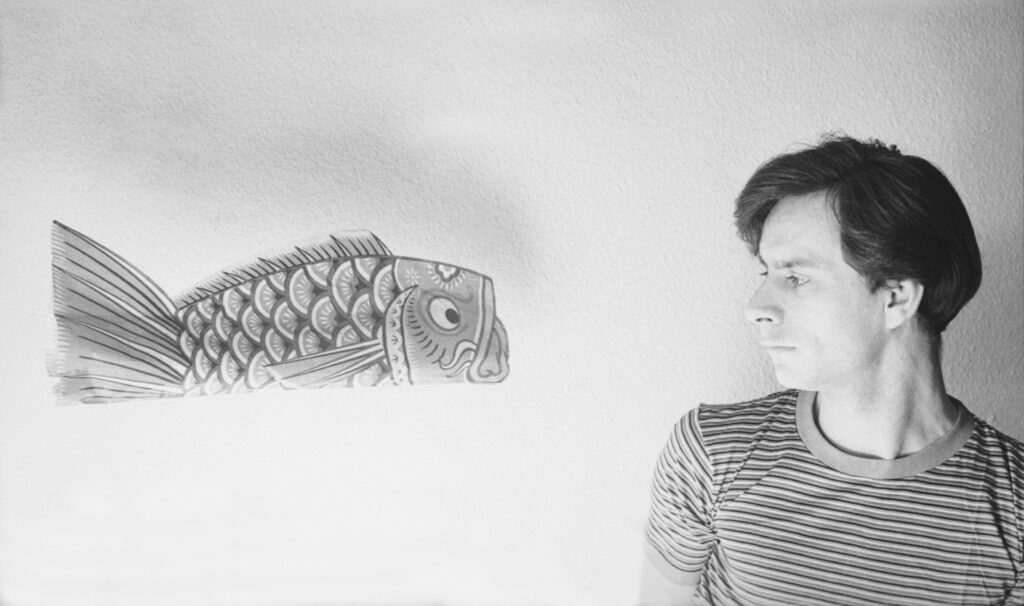
Punk, says Newman, was entirely burned out and passé as 1977 drew to a close, and it was essentially over a year before that. It was also not a time to allow it to be known that you were a Beatles fan. That was the crime that did for Glen Matlock, the Sex Pistols’ only capable tunesmith, but it’s something that somehow seems obvious in Newman’s work, though it’s difficult to pinpoint exactly why. Perhaps it is in the sense of experimentation, or the peculiarly British fondness for harmony and melody. A sense of post-Beatles psychedelia clings to these albums somehow. Strangely, it’s not because of the cover version of ‘Blue Jay Way’ on ‘Not To’.
“I was at school when The Beatles broke up,” says Newman.“I was a child through the whole Beatles thing, but I always felt that if you grew up on The Beatles then you could be open to any kind of music. In a way – and this is a situation that has existed for a very long time – The Beatles need to be reclaimed from the kind of people who are just interested in box sets of unreleased material.
“There’s a lot of depressing stuff around The Beatles, so there’s a generation who don’t get the core of it, people who are in their 30s now who hate The Beatles on principle, and I think that’s a pity because they’re missing something really good. They were incredibly innovative. Long before Radiohead, they were a hugely popular band who were taking massive risks with their releases.”
After The Beatles, was he listening to the bands coming out of Germany?
“Yes and no. There were very particular attitudes towards German music in the 70s. I think Can and Faust and Kraftwerk, obviously, were considered highly acceptable, and I was a huge Kraftwerk fan in the 70s, but I considered Tangerine Dream to be somewhat beyond the pale.
“I know someone who worked in the Virgin press department in the 70s who was present at the founding of the name ‘krautrock’, they made it up to sell these weird German bands they’d signed, specifically Faust. They did ‘The Faust Tapes’ album for the price of a single. Faust were pretty out there so I think it was good that they did that instead of grouping it in with the Henry Cow sort of stuff, which certainly my generation at least regarded as being rather dreary, left-over hippy music.
“The biggest appeal was Kraftwerk, because of their image, they were very, very not hippy. I didn’t discover Neu! until a lot later and I that’s true of a lot of people, they were very underground. I would’ve known Cluster, Cluster and Eno made a couple of records together, but no one had that consciousness of krautrock, that came later.”
The identification with German music and the dislike of home-grown hippy music make sense. Newman’s music with Wire, with Immersion (his electronic music vehicle with Malka Spigel), and under his own name, has a distinctly European aesthetic, if that means a tacit rejection of blues chord progressions and rock ’n’ roll structures of American rock music. Touring the European mainland in the 1970s with Wire came as something of a revelation.
“We were going to places where not only would the club stay open after you played, but they served food. There were people who wanted to have intelligent conversations with you, they weren’t just, ‘Give us one of your guitars, mate’, and we were beguiled by it. In Düsseldorf we were adopted by the avant-garde scene, and we were the first non-German band to play the legendary Ratinger Hof, so it was really a period when we felt plugged into Europe. I loved the idea of being on a land mass where you could just go all the way to China. I didn’t like being on an island. The British, as they proved recently, have somewhat insular views on the subject of their connectivity, which is depressing.”
Despite the discovery that touring outside the UK can be a rewarding experience, when the solo albums came out Newman played only five gigs with the line-up that created ‘A-Z’ and ‘Not To’.
“That was a criminal shame really, but I was so not into touring. I don’t want to be an entity, that’s my problem. Colin Newman’s actually my name, people get around that these days by having a project name, or you call yourself a name to avoid the problem, like David Bowie. My only real information about solo records at the time had been The Beatles solo records, and they’d done them all under their own name, so I just thought you were supposed to do it under your own name, it didn’t occur to me to do a project name. I should have done…”
There’s a new Immersion record around now too, and he’s trying to finish the next Wire album. He can’t, he says, support these old solo outings much.
“I can give interviews, but I can’t go out and play them live… I’m the world’s worst pop star, I’m just a rubbish solo artist.”
I think you might have given me the last word for the interview, there Colin…
“Yeah,” he sighs, “I’m very good at doing that.”
‘A-Z’/ ‘provisionally entitled the singing fish’/‘Not To’ are all out on Sentient Sonics
